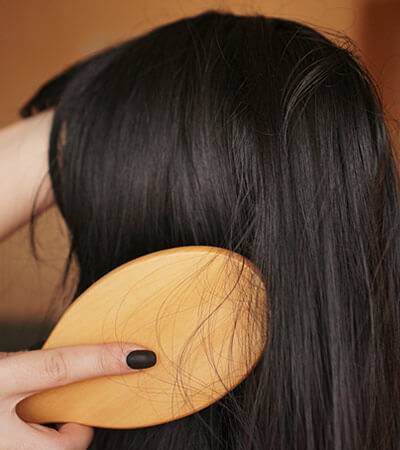Get Your Confidence back!
Love who you see in the mirror.
Shuly Wigs Specializes in Helping Patients with their Cranial Prosthesis
Shuly Wigs of New York City works with patients in need of a cranial prosthesis and can offer guidance on how to speak to your insurance company to see if your cranial prosthesis can be covered by your insurance carrier.
Will Insurance Cover Your Shuly Wigs Cranial Prosthesis?
The answer to this question depends on several factors, such as the type of insurance coverage you have, the specific policy you are on, and the reason for needing a cranial prosthesis.
If the cranial prosthesis is required due to a medical condition such as alopecia, radiation therapy, or chemotherapy, it may be covered by your health insurance plan. However, you should check with your insurance provider to determine the specific coverage details for your policy.
If the cranial prosthesis is needed due to hair loss resulting from an accident or injury, it may be covered by your automobile or homeowner’s insurance policy. Again, it’s important to check with your insurance provider to determine the specific coverage details for your policy.
It’s worth noting that not all insurance policies cover cranial prostheses, and even those that do may require certain conditions to be met before coverage is provided. Additionally, some insurance policies may only cover a portion of the cost of the prosthesis.

To determine whether your insurance will cover your cranial prosthesis, it’s best to reach out to your insurance provider and inquire about the coverage options available to you. Below are a few insurance companies that we have seen cover a cranial prosthesis in the past:
- Aetna
- Blue Shield
- United Healthcare
- Humana
- TriCare

When speaking to your insurance company, please be sure to ask about the coverage they offer for a “Cranial Hair Prosthesis”. Insurance companies are very specific about the terminology they use so it is important to refer to “Cranial Hair Prosthesis” and not use “Wig” when you ask about your coverage.
Using accurate terminology when applying for health insurance coverage or claiming tax deductions is vital. The appropriate terms include:
- Cranial hair prosthesis
- Hair prosthesis
- Full cranial prosthesis
What are the Types of Medical Hair Loss Covered By Insurance?
The types of medical hair loss that may be covered by insurance vary depending on the policy and the insurance provider. However, here are some of the common medical hair loss conditions that may be covered by insurance:
- Alopecia Areata: This is an autoimmune condition that causes hair loss in patches. Depending on the severity of the condition, insurance may cover the cost of a cranial prosthesis.
- Androgenetic Alopecia: This is a genetic condition that causes hair loss. Depending on the insurance policy, coverage may be available for cranial prostheses for individuals with this condition.
- Chemotherapy-Induced Hair Loss (Cancer-related hair loss): Cancer treatments such as chemotherapy can cause hair loss. Some insurance policies cover the cost of a cranial prosthesis for cancer patients undergoing treatment.
- Radiation-Induced Hair Loss: Radiation therapy can also cause hair loss, and some insurance policies may cover the cost of a cranial prosthesis for individuals undergoing radiation treatment.
- Trichotillomania: This is a compulsive disorder that causes individuals to pull out their hair. Depending on the severity of the condition, insurance may cover the cost of a cranial prosthesis.
- Thyroid-Related Hair Loss: Thyroid-related hair loss refers to hair loss that is caused by an imbalance in the thyroid hormones. The thyroid gland is located in the neck and produces hormones that regulate the body’s metabolism, among other functions.
It’s important to note that coverage for medical hair loss varies by insurance provider and policy. Therefore, it’s best to check with your insurance provider to determine whether your specific policy covers a cranial prosthesis for your hair loss condition.
The Difference Between a Cranial Prosthesis and a Traditional Wig
While traditional wigs and cranial prosthesis devices may seem like interchangeable terms for the same basic product, there are distinct and important differences between the two.
Traditional wigs can be custom designed for the perfect fit and look. A cranial prosthesis is created specifically to address the different needs of patients living with hair loss due to a medical condition. The cap is constructed differently from a traditional wig, designed to perfectly fit the cranium and scalp rather than accommodate existing hair under a cap. In addition to looking and feeling like natural hair, a cranial prosthesis is also designed to be comfortable, cool and lightweight for everyday wear.

What can you do if your Insurance Company denies your Claim for a Cranial Prosthesis?
You can reach out to the National Alopecia Areata Foundation (NAAF) or reach out to the American Cancer Society.
What is the National Alopecia Areata Foundation (NAAF)?
The National Alopecia Areata Foundation (NAAF) is a non-profit organization that is dedicated to improving the lives of those affected by alopecia areata. Alopecia areata is an autoimmune condition that causes hair loss, which can occur on the scalp or other parts of the body.
The NAAF was founded in 1981 and has since become the leading organization in the United States for alopecia areata education, research, and advocacy. The organization’s mission is to support research to find a cure or effective treatment for alopecia areata, to provide support and education to those affected by the condition, and to raise public awareness about alopecia areata.
The NAAF offers a range of programs and services to support individuals with alopecia areata and their families. These include support groups, educational materials, a resource center, a youth mentorship program, and an annual conference. The NAAF also funds research into the causes and potential treatments for alopecia areata, and advocates for increased funding and attention for this condition.
Overall, the National Alopecia Areata Foundation plays an important role in advancing research and providing support and resources for those affected by alopecia areata.
The American Cancer Society is very well known and in some cases, the American Cancer Society will provide a limited amount of financial help to secure a cranial prosthesis.
Contact Shuly Wigs Today!
If you have any questions about a new cranial prosthesis or how to approach your insurance company to find out if they will cover your cranial prosthesis, please contact Shuly Wigs today and we will do our best to answer your questions and help you secure your new cranial prosthesis.
Many insurance plans allow one complete cranial prosthesis device per year for medical hair loss, though the Standard List of Exclusions may prohibit coverage under default policies. In addition to health insurance coverage, cranial hair prosthetics can be a tax-deductible medical expense if medical bills exceed 7.5% of individual income. Shuly Wigs is New York’s premier destination for high-end wigs and cranial prosthesis devices. As a medical wig specialist, Shuly Wigs brings expert knowledge and excellent craftsmanship to each and every custom medical wig. To learn more about medical wigs for hair loss, contact Shuly Wigs today to schedule an expert consultation.
